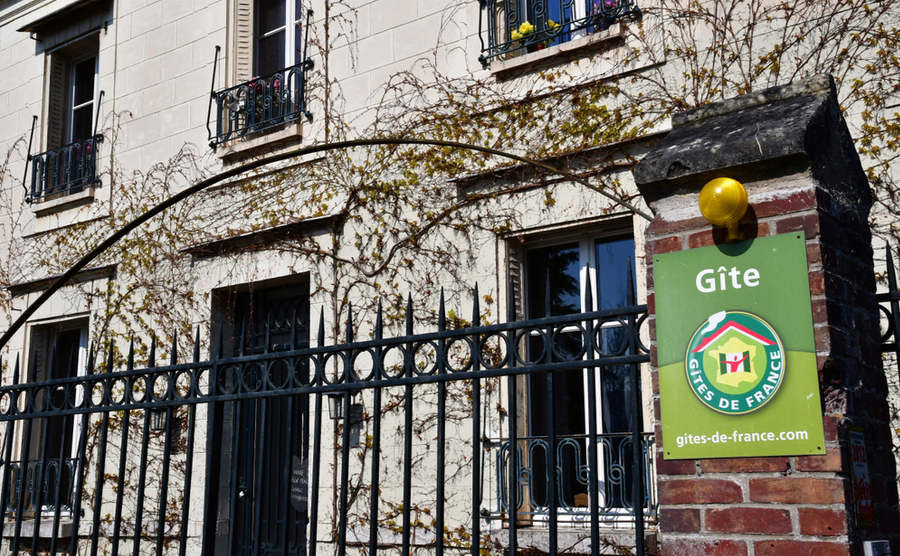Letting your property in France
Letting your property in France, especially during the summer months, can be a great way to generate income. However, it is really important to ensure that you do everything in the correct way.
Renting out your second home in France is a popular option for overseas buyers. Some then plan to move over at a later date, and others have simply purchased their property as a holiday let. Whichever group you fall into, there are a number of legal areas that must be considered.
Find out how to finance a buy-to-let purchase in France with your free France ‘How to Pay for It’ Guide.
If you plan on letting your property in France as a ‘shell’, there’s no need to set yourself up as a registered business. However, if you are letting the property out furnished, then it may be wise to register as a ‘professional landlord’, so that you can take advantage of available tax breaks (such as access to the French health system). Nonetheless, if you register as a business, you must remember that you are liable for French income tax on your rental earnings – although the double taxation relief between the UK and France means you will not have to pay tax twice.

Ready to rent out (Pack-Shot / Shutterstock.com)
Long-term rentals
If you are letting your property in France long-term, it is also worth remembering that tenants have strong security of tenure in France. As such, it is important to conduct a thorough and diligent check on whoever you decide to have renting your property. Also, as a landlord you will need to provide tenants with certain survey reports, just as if they were buying the property.
If you let your property out furnished, there are certain benefits to setting yourself up as a registered business.
It is usual to ask for a deposit at the start of the tenancy. The amount of this will depend on how you are letting the property. For a long-term tenancy this will generally be for one month, and for a short-term let it is normal to ask for a 10% deposit of the total rental value. For a long-term let in particular, it’s a good idea to get the agreement signed by a notaire. This will underscore the terms of the tenancy agreement and also give you stronger rights if the rent is not paid.
Finding the right tenant
When you begin searching for a tenant, your process will very much depend on the type of property and its location. For example, we would recommend advertising a large flat in a city nationally, whereas a flat or house in a rural community, village or hamlet may only need advertising very locally.
You could, of course, start the process of letting your property in France from the UK. You could advertise through an English property rental website, many of which cater for short term holiday lets. When you are over in France visiting your property, it can be a good idea to make full use of local shops. As well as this, ask at the mairie (town hall) if you can put up a little advert. There are also plenty of free newspapers around these days – in some regions you may even find an English language magazine! A good tip is to continue advertising your property, even after you have been booked up for a while. This will help you stay in the public eye, and allow you to keep an eye on general demand for short term letting in your area.

Consider your audience when marketing for letting your property in France.
Professional arrangement
You could also engage the services of a local estate agent and management company to advertise for you. They will moreover deal with the general letting and maintenance of the property – for a fee, which is normally negotiable. This will mean signing a “mandate”, an agreement between you and the agent, to market your property for rental. Don’t be persuaded to have your estate agent as a sole agent however – most French agents will not expect to be granted exclusivity!
In general, a decent flat or house in a good area with amenities will be easy to rent out, particularly in the summer months. Facilities such as garden, extra land and/or a pool, and being close to either the coast or mountains will always ensure that you can command a decent rental.
Finally, don’t forget insurance! We recommend using an established UK insurer that specialises in cover for people who let overseas properties.
Short-term rentals
The most common type of rental among overseas buyers is probably the classic gîte – a small, self-catering holiday let, either attached to your own home or, often, in a secondary building on your land. Many people run a gîte both for the income and the social benefit, and likewise for its larger cousin, the chambre d’hotes.
Managing a gîte and finding guests
Most people manage their gîte themselves, especially if it just the one and located on their land. This means you need to be fairly flexible in having time to do changeovers (cleaning, greeting guests and handing over the keys), but it isn’t too big a time sink. As most gîtes, if not all, are self-catered, you can be as hands-on or not as you wish during your guests’ stay.
Finding guests is much easier than in the past now, with sites like Airbnb (generally preferred by the English) and Booking.com (generally preferred by the French) cutting out the middleman. However, the flipside of advertising being easier means that you may have greater competition. It’s worth investing in good photos, having a detailed, upbeat description of your property and asking for reviews from guests to boost your rating on these sites.
Ready to start looking at properties to rent out in France? Find out what you should be looking for in our Viewing Trip guide.
These sites are also a good way to scope out the competition, and get a better idea of pricing levels. You’ll usually want to adjust seasonally, at the very least, and keep an eye on trends as time goes on. In busy periods, you can perhaps put prices up, and lower them to drive custom in less busy times.
Consider your market, too. Is it mainly people on short stays, on driving holidays making their way through France? What about other options? One lady we spoke to takes advantage of being near a rather swish chateau to host wedding guests who don’t quite want to pay through the nose for accommodation ‘up the road’! If you speak French, your market will also open up – the French are generally huge fans of gîte, and understand the expectations that come with it.
Opening our own gîte was a project, but great fun. We did the renovations ourselves. My brother’s a civil engineer so he was always at the end of the phone (telling us “well there’s nothing complicated there, Jen!”). We didn’t really have a large budget and bought everything second-hand, made up the apartment and it’s looking really good! It sleeps seven, with two main bedrooms and a lounge with a sofabed.
If you’re using an English tradesperson, make sure they’re qualified in France, likewise for plumbers and builders. French tradespeople can be more expensive than in the UK because of taxes. There’s a good book called Grapevine, like the Yellow Pages, in Intermarché, which is a good starting point.
Setting it up was quite straight forward. John’s retired and we are location de touriste, a tourist letting business, so we don’t have to have a full company structure. We just set up as an autoentrepreneur and use the facilities in the mairie and local chambre de commerce. It’s amazing how helpful the mairie and the notaire is, and my estate agent Anisa would always find out the best way to do something from the beginning. We were also quite lucky as we had a fair bit of experience ourselves, as a business as a public racehorse trainer, but if you’re starting out for the first time, you really do need advice from a professional.
When you arrive, go and introduce yourself to the mayor, say who you are and what you’re doing – they appreciate that, rather than just moving in and carrying on. Try and get a bit of French and speak to the French people; there is a bit of luck in meeting the right people, so make use of contacts your agent and other professionals can hook you up with.
We’ve been going for two and a half years and it’s busy most of the time. Sometimes we have to vary the prices and go for certain markets. We’re not a luxury, top-end gite, so you just have to play with the market a bit. We use Airbnb and Booking.com and, while everyone likes to complain about them, they take the marketing out of your hands. The French, for whatever reason, seem to have more confidence in Booking.com. We also get a lot of visitors for weddings up in the Chateau Mas de Montet, near Petit Bersac.
80% of the visitors we get are from France and are really nice – they really understand the gite culture, that it’s fairly basic but clean and they leave it clean and don’t treat it like a hotel but do things like stripping the beds when they leave.
Don’t be afraid to ask questions! It can be difficult getting quotes, but get as many as you can and just use your instinct. Don’t use someone you wouldn’t use to do a job at home, just because they’re cheap. Use a proper craftsman, whether they’re French or English.
We have no regrets. The Dordogne is beautiful and life here is much more relaxed and laid-back. The birdlife is incredible. You see cormorants, kingfishers, hawks. It’s very untouched and undeveloped. I have three horses (plus some goats!) and I get to go riding out every morning in the countryside.
Jenny Bidgood
